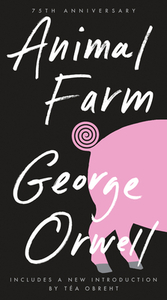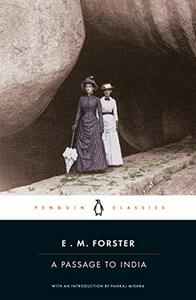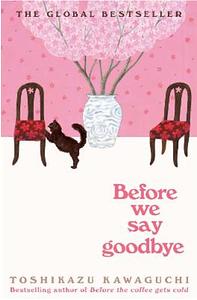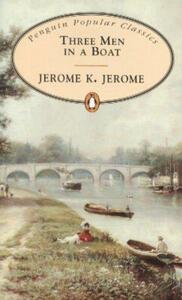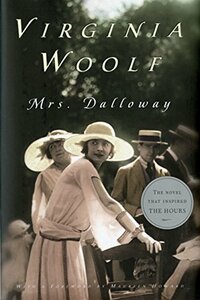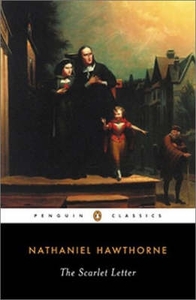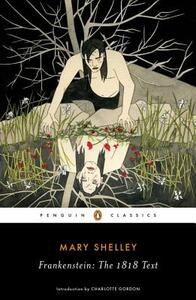Take a photo of a barcode or cover
sugar_popppp's Reviews (171)
- 5/5
- After reading this book, I sighed, stared at the wall, and thought, "What just happened?" Then sadness hit me. I felt sad about the ending, wondering why that happened and why their friendship couldn't be the same as before. I asked myself these questions.
- This book is set against the backdrop of 1924-25 British India and deals with the question of whether a Britisher and an Indian can become good friends. While this question might not bother us today, it was a significant issue at that time. Think of it like asking if an Indian and a Pakistani can become friends, and you can feel the confusion in your heart. Throughout the story, we come to understand the answer to this question. There are quite a few characters in this story, but my favorite is certainly Mrs. Moore, a kind, old British lady who proves that despite differences in thoughts, values, and upbringing, one can be friends if they have a lively spirit.
- Dr. Aziz reminds me of all the Indians, with our hospitality and the way we get so excited if a foreigner praises our culture even a little bit.
- Aziz and Mrs. Moore's friendship reminded me of Victoria and Abdul's friendship. I always admired their beautiful relationship. If you don't know about them, you must watch the movie "Victoria and Abdul." It's based on the real-life events of Queen Victoria and her Indian friend Abdul.
- Mr. Fielding is the type of person I aspire to be when it comes to friendship. I admire how much he believes in his friend, to the extent that he stands with them and goes against his own race and people.
---
*Spoiler ahead*
- At the end, the conversation between Aziz and Fielding almost made me cry. I wanted them to reconcile their friendship and become carefree like before, but their values and life experiences were keeping them apart. This is not the real story, but there must have been many Aziz and Fielding-like friendships in British India that were lost because of some differences. I hope now they are best friends after seeing India and Britain flourishing on their own, from sky.
---
- Few of my favourite lines of this book are :-
1. So you thought and echo is India?
2. I sometimes think we are merely passing figures in a godless universe.
3. Last paragraph and last conversation between Fielding and Aziz :-
“Why can’t we be friends now?” said the other, holding him affection-
ately. “It’s what I want. It’s what you want.”
But the horses didn’t want it —they swerved apart; the earth didn’t want
it, sending up rocks through which riders must pass single file; the temples,
the tank, the jail, the palace, the birds, the carrion, the Guest House, that
came into view as they issued from the gap and saw Mau beneath: they
didn’t want it, they said in their hundred voices, “No, not yet,” and the sky
said, “No, not there.”
- After reading this book, I sighed, stared at the wall, and thought, "What just happened?" Then sadness hit me. I felt sad about the ending, wondering why that happened and why their friendship couldn't be the same as before. I asked myself these questions.
- This book is set against the backdrop of 1924-25 British India and deals with the question of whether a Britisher and an Indian can become good friends. While this question might not bother us today, it was a significant issue at that time. Think of it like asking if an Indian and a Pakistani can become friends, and you can feel the confusion in your heart. Throughout the story, we come to understand the answer to this question. There are quite a few characters in this story, but my favorite is certainly Mrs. Moore, a kind, old British lady who proves that despite differences in thoughts, values, and upbringing, one can be friends if they have a lively spirit.
- Dr. Aziz reminds me of all the Indians, with our hospitality and the way we get so excited if a foreigner praises our culture even a little bit.
- Aziz and Mrs. Moore's friendship reminded me of Victoria and Abdul's friendship. I always admired their beautiful relationship. If you don't know about them, you must watch the movie "Victoria and Abdul." It's based on the real-life events of Queen Victoria and her Indian friend Abdul.
- Mr. Fielding is the type of person I aspire to be when it comes to friendship. I admire how much he believes in his friend, to the extent that he stands with them and goes against his own race and people.
---
*Spoiler ahead*
- At the end, the conversation between Aziz and Fielding almost made me cry. I wanted them to reconcile their friendship and become carefree like before, but their values and life experiences were keeping them apart. This is not the real story, but there must have been many Aziz and Fielding-like friendships in British India that were lost because of some differences. I hope now they are best friends after seeing India and Britain flourishing on their own, from sky.
---
- Few of my favourite lines of this book are :-
1. So you thought and echo is India?
2. I sometimes think we are merely passing figures in a godless universe.
3. Last paragraph and last conversation between Fielding and Aziz :-
“Why can’t we be friends now?” said the other, holding him affection-
ately. “It’s what I want. It’s what you want.”
But the horses didn’t want it —they swerved apart; the earth didn’t want
it, sending up rocks through which riders must pass single file; the temples,
the tank, the jail, the palace, the birds, the carrion, the Guest House, that
came into view as they issued from the gap and saw Mau beneath: they
didn’t want it, they said in their hundred voices, “No, not yet,” and the sky
said, “No, not there.”
I completed this today at 7 am, this is the fourth part of the series called before the coffee gets cold, and after reading this I'm sure that no matter how many books I will read in japanese literature, this series is going to be my most favorite.
I have mixed feelings about this book, as I'm not a person who likes reading self help books, There are only few self help books like ikigai and I want to die but I want to eat teokkbokki, which I really like. So maybe I sound bias because I'm not into this genre, because it doesn't work for me, I forget most of the things next day, go back to my old ways, but below I mentioned things I like about this book :-
1. It doesn't have scientific tried and proofed methods of how to be most productive and get most out of 24 hours.
2. It doesn't feel like lecture, like someone is telling you, do these 10 things and you'll become best of yourself.
3. It focuses on OVERTHINKING, which we all know is the biggest problem why a lot of people procrastinate, I mean like others say wake up early, make your bed, blah blah.....how would I do that when the first thought in my mind just after waking up is - why didn't I die in sleep ? And it's because of overthinking and anxiety, I feel every day. So first thing one need to fix is OVERTHINKING.
4. Book is not unnecessarily long, not giving me 5000 ways to be productive, I mean self help book should be like talking to your friends, it should refresh you, not only give you motivation which most of the time is temporary.
I said I have mixed feelings about this book because, it's not the best book I've read in this genre, but also it's not worst book in this genre, so it is something in which I've highlighted few things, and I might look it again, when I feel low.
1. It doesn't have scientific tried and proofed methods of how to be most productive and get most out of 24 hours.
2. It doesn't feel like lecture, like someone is telling you, do these 10 things and you'll become best of yourself.
3. It focuses on OVERTHINKING, which we all know is the biggest problem why a lot of people procrastinate, I mean like others say wake up early, make your bed, blah blah.....how would I do that when the first thought in my mind just after waking up is - why didn't I die in sleep ? And it's because of overthinking and anxiety, I feel every day. So first thing one need to fix is OVERTHINKING.
4. Book is not unnecessarily long, not giving me 5000 ways to be productive, I mean self help book should be like talking to your friends, it should refresh you, not only give you motivation which most of the time is temporary.
I said I have mixed feelings about this book because, it's not the best book I've read in this genre, but also it's not worst book in this genre, so it is something in which I've highlighted few things, and I might look it again, when I feel low.
*Mrs. Dalloway* is the fourth novel written by Virginia Woolf, published in 1925. Woolf wrote this book after reading James Joyce's *Ulysses*, which was written in the stream of consciousness style, and it clearly inspired her.
The novel explores the lives and thoughts of seven major characters, with the most prominent being Clarissa Dalloway and Septimus. Although they don’t interact directly in the story, by the end, we see how their lives are subtly connected.
This is a thought-provoking novel that paints a vivid picture of Victorian society in the early 1900s, or more specifically, post-war Britain. Themes like depression, nostalgia, and PTSD are explored in depth.
My Thoughts on the Book:
I have mixed feelings about *Mrs. Dalloway*. I don’t dislike it, but it's not a book I would immediately recommend to someone looking for an easy classic. The writing is beautiful and flows well, but sometimes the stream-of-consciousness style makes it challenging for readers unfamiliar with Woolf’s technique. This book requires full concentration to appreciate every line. I found the first half slow, but the second half picked up and became much more engaging.
Favorite Part:
What I enjoyed most was Woolf's portrayal of depression and overthinking, along with the characters' reactions to PTSD. The novel also criticizes how people not directly impacted by war tend to romanticize it, while those affected are often alienated by society.
Favorite Character:
My favorite character is Richard Dalloway. Though he’s portrayed as a conservative man, Woolf doesn’t show him as an absent husband or father. He genuinely tries to express his love for his family, which I found admirable.
This book was published in 1850 and is a work of fiction with historical elements, set during the Puritan era. The story begins with a woman named Hester Prynne, who commits adultery. However, because she was pregnant at the time, she wasn't sentenced to death—since adultery was a criminal offense in Puritan America. To protect the identity of the child's father from facing the death penalty, she refuses to reveal his name. Instead, Hester is punished through public humiliation and forced to wear a scarlet letter "A" on her chest, symbolizing "Adultery." As the story unfolds, we see how the meaning of the letter changes from "Adultery" to "Able," and we also discover who the father of her child is.
The novel explores themes like pride, truth, morality, guilt, and revenge. The writing can be a bit challenging at times, but it's incredibly beautiful. Hawthorne describes everything so vividly that it paints a clear picture of the time period, creating a very atmospheric experience.
There are a few supernatural elements in the story, which fit with the Puritan era's beliefs. At that time, people believed in many superstitions, and since Nathaniel Hawthorne came from a Puritan family, these things were not supernatural to him—they were a part of his reality, or what he considered truth.
Some of the things I loved most about this book are:
1. It doesn't justify adultery. While we see the love between Hester and her lover, and how she suffers under the judgment of others, the story never lets us forget that her actions had consequences and brought pain. This might reflect Hawthorne's Puritan upbringing.
2. Even though Hester is a Puritan and many of her thoughts are shaped by that background, she stands her ground and remains strong. She is not a weak protagonist.
3. Pearl, Hester's daughter, constantly reminds her of the sin she committed, almost acting as a living "scarlet letter." Despite this, Hester never resents her child—she loves her deeply.
The novel explores themes like pride, truth, morality, guilt, and revenge. The writing can be a bit challenging at times, but it's incredibly beautiful. Hawthorne describes everything so vividly that it paints a clear picture of the time period, creating a very atmospheric experience.
There are a few supernatural elements in the story, which fit with the Puritan era's beliefs. At that time, people believed in many superstitions, and since Nathaniel Hawthorne came from a Puritan family, these things were not supernatural to him—they were a part of his reality, or what he considered truth.
Some of the things I loved most about this book are:
1. It doesn't justify adultery. While we see the love between Hester and her lover, and how she suffers under the judgment of others, the story never lets us forget that her actions had consequences and brought pain. This might reflect Hawthorne's Puritan upbringing.
2. Even though Hester is a Puritan and many of her thoughts are shaped by that background, she stands her ground and remains strong. She is not a weak protagonist.
3. Pearl, Hester's daughter, constantly reminds her of the sin she committed, almost acting as a living "scarlet letter." Despite this, Hester never resents her child—she loves her deeply.
This book explores the inner turmoil of Jaya, a middle-aged woman, as she reflects on her role as a wife, mother, and writer after her husband's professional scandal forces them into temporary seclusion. Through her introspection, Jaya confronts the silence she has maintained in her marriage and "fe, ultimately seeking to reclaim her voice and identity in a patriarchal society.
